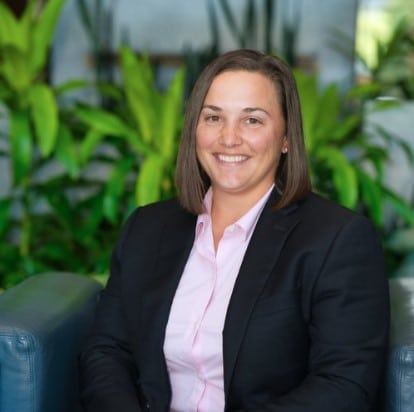In the first quarter of 2022, the Shaker Fundamental Growth strategy declined along with the major U.S. equity market indices. Broadly, large cap stocks declined less than small caps with the S&P 500 falling 4.6% in the quarter, while small cap growth stocks were down 12.6%. This continued the relative trend from 2021 as the S&P 500 rose nearly 29% and small cap growth stocks increased just 2.8% last year. Further, value stocks outperformed growth stocks in Q1.
As you know, we invest across small, medium, and large market capitalization stocks. This approach along with our research into the fundamental outlook for these investments has resulted in the composite strategy outperforming the Total Market Index over the last 5 and 15 year time periods. Our investments in smaller capitalization growth stocks weighed on performance relative to the overall market in the first quarter, but we remain confident in our approach over longer time horizons. The relative performance of large vs. small stocks tends to go through cycles, and by investing across all market capitalizations we have a larger investable universe to identify the best opportunities.
The last three years have produced very strong returns in the US equity markets with the S&P 500 rising just under 19% on average fueled by low interest rates and substantial increases in the money supply in the U.S., Europe, and Japan. As we anticipated entering the year, these conditions are beginning to change in 2022 and we continue to expect broader market returns to be lower than in the recent past. That said, we have a long track record of finding attractive investment opportunities in market downturns that have enabled the fund to perform well over the long term and we are working to position the fund for the eventual end of this correction.
The following is a summary of returns for the Fundamental Growth strategy and selected major indices for the first quarter, last year, five, ten and fifteen year time periods. Multi-year returns are average annual returns:
| 3 Months Ending 03/31/22 | 12 Months Ending 03/31/222 | 5 Year Annualized Returns | 10 Year Annualized Returns | 15 Year Annualized Returns | |
|---|---|---|---|---|---|
Shaker Fundamental Growth (net*) | -12.46% | 1.07% | 18.59% | 13.17% | 10.90% |
S&P 500 Index | -4.60% | 15.65% | 15.99% | 14.64% | 10.26% |
Small Cap Index | -12.63% | -14.33% | 10.33% | 11.21% | 8.81% |
US Total Market Index | -5.40% | 11.67% | 15.31% | 14.21% | 10.13% |
| *returns are preliminary and net of 1% management fee and expenses. | |||||
Discussion of First Quarter Performance and Positions
As typical in the midst of a market downturn, fewer stock positions positively impacted performance in the first quarter. As with the broader markets, positive returns were concentrated in the Energy, Health Care, and Staples sectors. Our largest winners in Q1 were:
- Kroger (KR) – a national grocery chain
- EOG Resources (EOG) – an oil and gas producer
- Diamondback Energy (FANG) – an oil and gas producer
- AmerisourceBergen (ABC) – a pharmaceutical sourcing and distribution services company
- Matador Resources (MTDR) – an oil and gas producer
Our largest detractors during Q1 were Zebra Technologies (ZBRA), PayPal (PYPL), Axos Financial (AX), The Trade Desk (TTD), and D. R. Horton (DHI). Many of these names had very strong positive impact on the portfolio during 2021 and despite the recent pullback we continue to see them as attractive long term holding that are likely to perform well following a market correction.
Individual position performance was impacted by the broader market trend of small cap underperformance relative to large caps. To be more specific, our investment strategy tends to be more heavily weighted in small and mid-cap growth stocks, as that is where we tend to find many companies with the greatest long-term return potential.
Despite these challenges, we continue to believe in our investing approach and are using this decline in the market to identify attractively priced growth businesses that we believe will position the fund to outperform in the future.
Investment Outlook
An increased uncertainty on the part of investors has caused valuation multiples to contract. There are several factors impacting the outlook which have made investment outcomes particularly difficult to forecast:
Robust economy and tight labor market, but slowing growth – The U.S. economy is currently healthy from a demand perspective. Consumers are eager to spend, travel, go to restaurants, and generally re-engage in economic activity that was restricted for two years for many due to COVID. The unemployment rate is low at 3.6%. However, real growth is slowing due to limited spare capacity relative to a year ago, increasing inflation and fewer potential sources for incremental demand.
Supply Constraints – Businesses and consumers continue to be negatively impacted by supply constraints in a variety of areas – lack of labor, semiconductors, transportation capacity, oil and gas production, etc. It is difficult to forecast when certain bottlenecks ease and others emerge.
Inflation – Due to robust demand and constrained supply, the consumer price index rose 8.5% in March compared to a year earlier, the fastest rate of inflation since 1981. Elevated inflation tends to be bad for consumers as it reduces spending power and therefor real demand, but it can be good for businesses with pricing power as revenues and profits are in nominal dollars.
Fed Tightening – In response to elevated inflation and low unemployment, the Federal Reserve began to raise short-term interest rates from zero in March. They are expected to aggressively raise rates for the remainder of the year, as well as begin to reduce the size of the Fed’s balance sheet. Fed tightening tends to be a headwind for the value of financial assets. There is the risk that aggressive fed tightening could push the economy into a recession, although the timing is uncertain. Historically, equity markets tend to rise during rate hike cycles as solid economic growth and increasing earnings offset valuation headwinds, but subsequently decline during recessions triggered by increased rates.
Higher long-term interest rates – In response to higher inflation and the outlook for Fed rate hikes of short-term interest rates, 10-year Treasury interest rates have risen from 1.51% at the beginning of the year to nearly 3% as of mid-April. Higher long-term interest rates tend to slow future growth through increased borrowing costs for businesses, and slows housing activity via higher mortgage rates. Higher rates also reduce the prices of financial assets as it directly reduces the price of already issued bonds and equities as they become less attractive relative to their fixed income alternatives.
War in Ukraine – Russia’s invasion of Ukraine further added to the uncertainty of the outlook and aggravated inflation and supply chain problems, particularly for energy and agricultural commodities. The range of potential outcomes is wide and timing is uncertain. A peace agreement could be reached or the conflict could expand to countries beyond Ukraine. The different potential paths of the conflict increases the uncertainty for global markets and the economy
China – China continues its “Zero COVID” policy, and is re-implementing lockdowns in many parts of the country as more contagious variants of the virus emerge. China remains more susceptible to the risks of the virus, in part because a smaller percentage of their population has been affected by prior surges and the fact that the vaccines used in China are less effective in protecting against infection. It is unclear how big the hit to the global economy will be depending on the severity and length of additional lockdowns in China.
The many factors impacting financial markets in 2022 involve heightened risk or uncertainty, which is historically negative for market returns. We are carefully weighing the potential impact of these factors on the overall equity markets as well as the individual companies in which we invest.
While we typically target the fund to be fully invested, we have reduced our equity exposure to approximately 90% given the risks to the outlook. We are approaching portfolio adjustments deliberately and patiently as we await more news from company earnings reports. While we forecast continued earnings and revenue growth for the companies in the portfolio, we recognize that risks to the economy are likely to increase over the next 12-24 months. We are prepared to adjust the portfolio as we get more clarity regarding the outlook.
We believe that when the markets do put in an ultimate bottom, there will be very attractive investment opportunities, especially for profitable growth stocks. The correction in small cap growth stocks is now close to 15 months and down 33% since peaking in February 2021. World economic growth will continue to be slow—aging populations and low birth rates dictate it. Real growth stocks will continue to be worth more because they can grow when other companies cannot. We are adjusting to the current market, and plan to be able to take advantage of the future when opportunity inevitably returns.
We hold a diversified portfolio of stocks in your account. Our largest long holdings (in no particular order) are as follows:
| Company | Sector |
|---|---|
| Alphabet (GOOG) | Technology |
| Broadcom (AVGO) | Technology |
| Concentrix (CNXC) | Technology |
| Paycom Software (PAYC) | Technology |
| Axos Finanical (AX) | Financials |
| Amazon.com (AMZN) | Consumer Discretionary |
| The Trade Desk Inc. (TTD) | Consumer Discretionary |
| Paylocity (PCTY) | Industrials |
| Visa (V) | Industrials |
| Wesco International (WCC) | Industrials |
The ten largest positions listed above are 33.1%, which is a lower concentration than we typically holds for the top-ten holdings. In general, the average cash position in accounts that we manage is also higher than normal. We are actively looking to take advantage of more attractive valuations in individual stocks and have begun to do so with the recent market pullback.
Sincerely,
The Shaker Investment Team
General Disclosures: Disclosure: Past performance is not indicative of future performance. It should not be assumed that any investment or strategy discussed in this publication will be equally profitable in the future. Investment in this strategy carries risks, including loss of principal. There is no guarantee that any specific investment strategy will be suitable or profitable. Investments in smaller companies may be riskier, less liquid, more volatile and more vulnerable to economic, market and industry changes than investments in larger, more established companies. The strategy’s overall return is a composite of clients’ separately managed account returns. Some clients’ investment returns were more or less than the overall strategy return. Not all our client’s returns surpassed the benchmark and the strategy is more concentrated than the benchmark. The index performance information in the table is based on public information which we believe to be accurate but have not been verified.
The specific securities identified in this report does not represent all of the securities purchased or sold or recommended to clients. Holdings / sector weightings in any strategy are subject to change and should not be considered investment advice or a recommendation to buy or sell a particular security. Actual holdings may vary by client. A list of all the stocks selected for any of our strategies during the trailing twelve months is available upon request. This document is confidential and for the sole use of the intended original recipient. It is not intended as investment advice or recommendation, nor is it an offer to sell or a solicitation of an offer to buy any interest in any fund or product.









